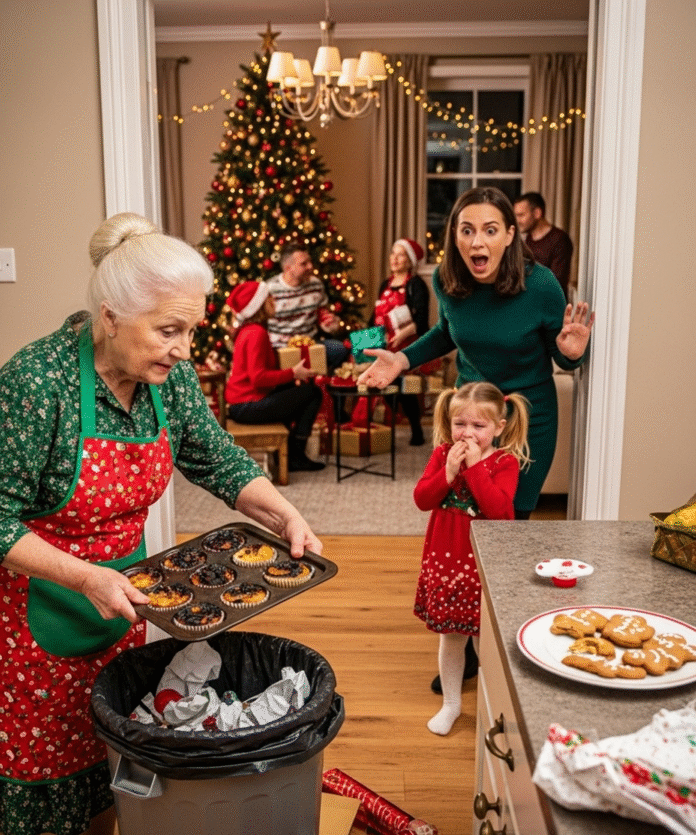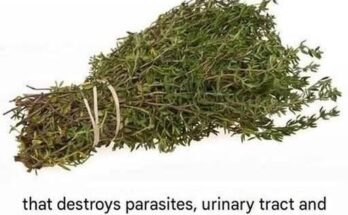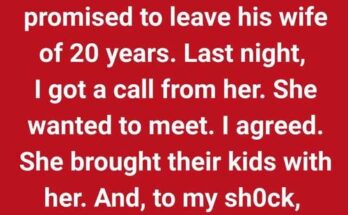Families talk a lot about love, but not nearly enough about emotional boundaries, toxic family dynamics, and the kind of financial independence that lets you finally say, “Enough.”
For years, I told myself that what happened in my childhood dining room was just “how families are.” I minimized the cutting remarks, the sky-high expectations, the feeling that nothing I did was ever quite good enough. But one December evening, at my mother’s Christmas dinner table, my eight-year-old daughter walked straight into the same storm I had grown up in.
And that was the night everything changed.
Driving Toward A Familiar Kind Of Dread
It was supposed to be a simple Sunday dinner in December. Roast chicken, holiday decorations, the good china dragged out of its cabinet. On my phone, the calendar reminder flashed at me like a warning:
“Dinner at Mom’s – 6 PM. Smile. Don’t start anything.”
My husband, Evan, squeezed my hand as we drove under bare trees and past porches already wrapped in Christmas lights.
“Ready?” he asked.
“As I’ll ever be,” I said. Our private code for: no, I am not ready for the comments, the comparisons, and the criticism that always comes wrapped as “concern,” but I am going anyway. Because it is family.
In the back seat, our daughter Chloe was practically vibrating with excitement. She was holding a foil-covered tray in both arms like it was treasure. She had been up early that morning, apron on, standing on a chair at the kitchen counter, determined to bake cupcakes for Grandma’s Christmas dinner.
Her first batch burned. The second went flat. The third crumbled coming out of the pan. On the fourth try, she looked at me with serious eyes and said, “I’m not giving up, Mom. Grandma is going to love these.”
And she did it. Vanilla cupcakes with pink frosting and rainbow sprinkles. A little uneven, a little messy, absolutely beautiful.
“Do you really think Grandma will like them?” she asked for the fifth time on the way there.
“She’s going to love them,” I said. I wanted to believe it. I also knew my own mother’s standards. I was still hoping, after all these years, that she might be different with my child than she had been with me.
The Table Where Nothing Was Ever Quite Enough
My parents’ house looked picture-perfect from the outside. Wreath on the door. Candles glowing in the windows. Cars already lined the driveway: my sister Monica’s spotless SUV, my father’s old sedan, my brother-in-law’s car.
We walked in without knocking. That was how it always worked in this family. Constant access. Not always a lot of warmth.
The familiar smells greeted us first: garlic, rosemary, something just on the edge of overdone that my mother would proudly call “perfectly caramelized.”
She appeared from the kitchen, dish towel in hand, smile wide.
“There you are!” she called. “We thought the highway swallowed you.”
Her eyes flicked to the big clock on the wall. Seventeen minutes past six. I felt the quiet judgment in the way her smile tightened.
“Traffic,” I said lightly.
“Well, there is always something,” she replied, already turning toward Evan. “You look wonderful, Evan. Have you lost weight?”
He shook his head, shrugging.
“Well, you look it,” she cooed, then turned to me. “Jody, you should take notes.”
There it was. The first small sting of the evening.
Beside me, Chloe shifted her weight and hugged the tray closer. She was waiting for someone to notice the effort she had brought in both arms.
We moved into the dining room, where the table looked like something out of a holiday magazine. White tablecloth, polished silver, candles, and my mother’s best china. My father sat at one end with a drink, my mother’s place like a throne at the other. Monica and her ten-year-old daughter, Sienna, were already seated. Sienna’s posture was perfect. Her plate was half-empty.
“She made dessert,” I said, resting a hand on Chloe’s shoulder. “All by herself. I helped with the oven. She did everything else.”
There was a murmur around the table. The polite, distant kind of praise adults give when they are only half-listening.
“Oh, that’s sweet.”
“How nice.”
“How very ambitious.”
Chloe peeled back the foil to reveal her masterpieces. Pink swirls of frosting, too many sprinkles in some places and not enough in others. They smelled like vanilla and confidence.
No one leaned in.
No one said “Wow.”
Sienna wrinkled her nose. “Are they gluten-free?” she asked.
I blinked. “No. Why?”
“Mom says I’m not doing gluten this week. It makes me puffy,” she announced, while steadily eating a buttered dinner roll.
Monica smiled proudly. “We are being mindful about inflammation. You understand.”
I looked at Chloe. Her bright smile faded, just a little.
Then my mother stepped closer, voice soft and sugary.
“Sweetheart, it is lovely that you tried,” she told Chloe. “Baking is such a good skill. But we already have so much food. I made three desserts. Everyone will be too full. Let’s put these in the kitchen. You can take them to school tomorrow and share them with your friends. How does that sound?”
She did not wait for an answer. She simply took the tray from Chloe’s hands and carried it away.
Conversation swelled back up. My father asked about Evan’s job. Monica started talking about Sienna’s soccer team.
Chloe quietly sat down beside me. Her plate was empty. Her hands were folded too tightly in her lap. The light in her eyes had dimmed.
A voice in my head said, Let it go. It is just dessert. She will forget.
Another voice, one that had been silenced for years, whispered: This is exactly how it starts.
Cupcakes In The Trash
I excused myself a few minutes later to “get more napkins.” No one questioned it.
The kitchen, my mother’s proud domain, was spotless. Counters gleamed. The sink was empty. There was no tray of cupcakes cooling anywhere.
Then I saw the trash can, lid not fully closed.
Something made me look.
Inside, smeared against the garbage bag, was pink frosting. Twelve crushed paper liners. Crumbs. Crumpled foil. Every single cupcake was in the trash. Not wrapped for later. Not tucked in the refrigerator. Not offered to a neighbor.
Thrown away.
My throat tightened.
“Mom?” came a small voice behind me.
I turned.
Chloe stood in the doorway, eyes locked on the trash. She took in the frosting, the crumbs, the ruined paper cups. Her face went very still.
She did not cry. She did not ask a question. She just looked, and I watched something inside her quietly fold up.
I opened my mouth to try to soften what she was seeing. No words came.
She turned and walked back toward the dining room, her footsteps silent.
By the time I followed, she was back in her seat, napkin in her lap, staring at the tablecloth. No one seemed to notice she had even left.
Monica was telling a story about “kids these days” and how they “cannot take criticism.”
“We never praised you girls for half-done work,” my mother said proudly. “That is why you turned out so well.”
I looked at Chloe’s tight shoulders and folded hands and knew something had just reached a breaking point inside me.
Raising My Glass
I picked up my wine glass. My hand was steady.
“I’d like to make a toast,” I said.
The table fell silent. Everyone turned to look at me. My mother smiled, expecting something pleasant and polite.
I stood up.
“To the last time we all sit at this table like this,” I said. “To the last time we pretend this is what family is supposed to feel like.”
My mother’s smile disappeared. “Jody, what are you talking about?”
“We are leaving,” I said. “And we will not be coming back.”
Evan looked at me, searching my face. Then he stood up too. Chloe watched us for a moment, then slipped her small hand into mine.
“This is ridiculous,” my mother snapped. “Over a few cupcakes? You are being dramatic.”
“It is not about cupcakes,” I said quietly. “It is about the way you have treated what I make, what I am, my whole life. Tonight, you did it to my daughter. You did not have to put them on the table. But you did not have to throw them away, either. And you certainly did not have to throw away her feelings.”
“We were teaching her,” my sister said. “Children need to know effort alone is not enough.”
“She is eight,” I replied. “There are a dozen ways to guide a child that do not involve humiliating them.”
I turned to Chloe. “Sweetheart, go get your coat.”
She did not hesitate.
As we walked down the hallway lined with carefully posed family photos, my mother called after us, voice shaking.
“You cannot just walk out. We are family.”
I turned back once.
“Family should not require a child to accept being hurt in order to belong,” I said. “We are not doing this anymore.”
I closed the door gently behind us. Not a slam. A simple, final click.
Ending The Financial Strings
That night, after Chloe was asleep, I sat at the computer and opened our bank accounts. For years I had been quietly helping my parents: a monthly transfer “to help with the mortgage,” extra money for “unexpected repairs,” little bailouts here and there. It all sounded reasonable at the time.
One click at a time, I canceled them. Automatic payments. Extra transfers. All of it.
Evan watched me from the doorway. “Maybe wait a day or two,” he suggested. “You are hurting. You might feel differently once you cool off.”
I shook my head. “I do not want to feel differently,” I said. And for once, I knew I meant it.
In the morning, I expected guilt. Instead, I felt lighter. Chloe crawled into my lap and wrapped her arms around me.
“Thank you for leaving last night,” she whispered. “I did not want to say goodbye.”
“Your cupcakes were wonderful,” I told her. “You did nothing wrong.”
Her shoulders relaxed. “Can I bake more this weekend?”
“Yes,” I said. “For us. And we will eat every single one.”
When “Help” Crosses A Line
By Tuesday, the phone calls began.
First were the messages about my “overreaction.” Then came the call from my father about the mortgage payment that had not arrived.
“We depend on that money,” he said. “The bank did not send it this month.”
“The bank did nothing wrong,” I replied. “I canceled it.”
“You cannot do that,” he said. “We are your parents.”
“I did,” I answered. “And being parents was your choice. Not a debt I have to repay forever.”
Days later, looking through my online statements, I saw a transfer I did not recognize. A large one. Money had been moved out of my account without my knowledge.
Years earlier, after Chloe was born, my mother had persuaded me to sign a power of attorney for “emergency purposes.” It should have expired. It should have been used only if something happened to me.
Instead, it had been treated like a key.
I spoke with an attorney. We went through the documents together, page by page. She calmly explained that what had been done was not appropriate and that I was within my rights to demand the money back and set firm boundaries.
Letters were sent. Explanations were requested. The tone from my parents shifted quickly from defensive to apologetic once they understood I was serious about protecting my finances and my family.
Repayment plans were arranged. The money came back in installments, each deposit a quiet reminder: I was allowed to say no. I was allowed to close the tap.
Six Months Later: A Different Kind Of Home
Half a year has passed since that Christmas dinner. My parents sold their house and moved to a smaller place in a different town. We have not visited. The calls grew less frequent. My sister still goes sometimes, but even she has started to see some cracks that were easier to ignore when I was playing the role of problem-solver and provider.
What surprises me is this: I do not miss the gatherings. I miss the idea of a warm, accepting family, but not the reality I grew up in.
Meanwhile, in our house, something has changed for the better.
Chloe stands taller. She laughs more. When she makes things now, she brings them to us with open hands instead of holding her breath.
Recently, she burned a batch of cookies. She wrinkled her nose and said, “These are pretty ugly.”
“Do they taste good?” I asked.
She tried one and grinned. “Actually, yes.”
“Then they are perfect,” I said. “Pretty is optional. Delicious is what counts.”
Her teacher later told me Chloe proudly announced, “My mom says you do not have to be perfect to be loved,” while handing out those slightly charred cookies.
One evening she knocked a glass off the table. It shattered. She froze and looked at me, waiting for anger.
“Are you okay?” I asked. “The glass can be replaced.”
Her shoulders dropped. “I thought I would be in trouble.”
“Not for an accident,” I said. “People matter more than things here.”
That simple sentence felt like the opposite of everything I had been taught growing up.
What I Want My Daughter – And Myself – To Remember
Sometimes, late at night, the old doubts still whisper:
You are a bad daughter.
You will regret setting these boundaries.
When that happens, I picture pink frosting smeared inside a trash can. I picture an eight-year-old girl seeing her effort treated like garbage. I remember the look on her face when I raised my glass and said, “This is our last family dinner like this.” It was not fear I saw. It was relief.
So here is what I am choosing to teach her now:
You do not have to be perfect to be loved.
Respect is a basic requirement, not a prize.
Toxic family dynamics are not something you are required to accept just because you share a last name.
Healthy emotional boundaries and financial independence are not selfish. They are how you protect the people you love.
We no longer sit at my mother’s “good” table.
Instead, we sit at our slightly scratched kitchen table. We eat the cupcakes that lean to one side. We hang Chloe’s uneven artwork on the refrigerator. We laugh when the towels do not match.
And whenever someone shows us they cannot handle something as simple as a child’s proud offering with basic kindness, we remember something very important:
We are allowed to leave.



